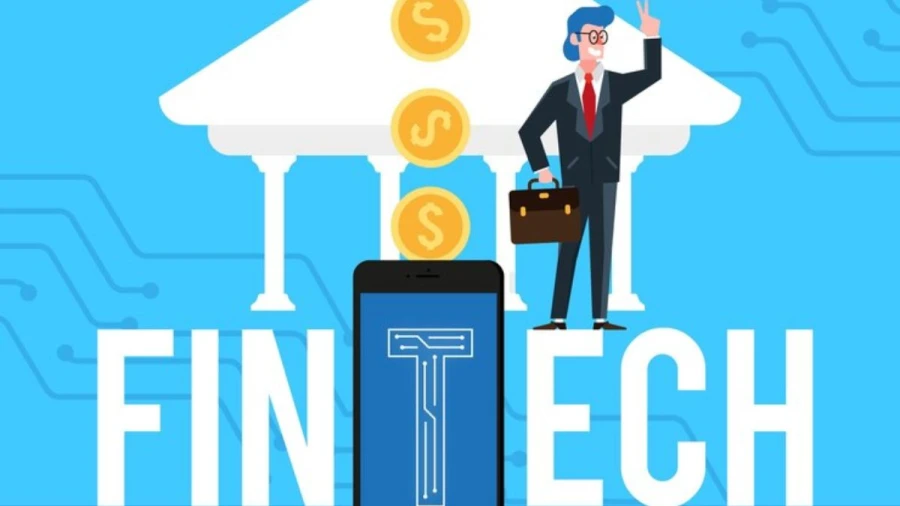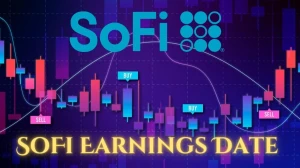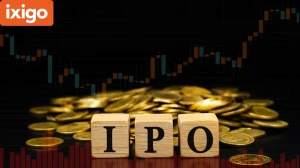
Top Fintech Companies, What is a Fintech Company?
Stripe leads in digital payments, Wealthfront excels in robo-advisory services, LendingClub is a notable peer-to-peer lending platform, Coinbase is renowned for cryptocurrency trading, and Mint stands out for budgeting and personal finance management.
by Ayisha
Published Aug 17, 2023 | Updated Jan 25, 2024 | 📖 6 min read
What is a Fintech Company?
A Fintech company is an entity that leverages technology to provide innovative financial services, transforming how individuals handle various aspects of their finances, including storing, saving, borrowing, investing, moving, paying, and protecting money. Fintechs are known for disrupting traditional financial industry norms, introducing novel ways to share, save, invest, and manage money.
As integral components of daily life, Fintech companies play a role in democratizing financial services, making them more accessible to a broader audience. Their offerings span diverse areas, encompassing banking, budgeting, investments, lending, and beyond, ultimately improving the financial experiences of individuals and addressing the needs of those underserved by conventional financial options.
Top Fintech Companies 2024
In the finance sector, 2024 marks a significant chapter for Fintech, where technology meets financial services. Leading this transformative wave are standout companies shaping the landscape of how we manage and interact with our money.
From Ant Group in China, valued at an impressive $78.5 billion, to the US-based giants Stripe and Chime Financial, each valued at $50 billion and $25 billion respectively, these companies are revolutionizing payments, banking, and more.
The UK's Revolut, valued at $33 billion, is making strides with innovative banking services, while Rapyd ($15 billion) and Plaid ($13.4 billion) contribute globally with their advanced payment networks and banking connections.
|
Company |
Value (Billion USD) |
Specialty |
|
Ant Group |
$78.5 |
Financial services including mobile payments, wealth management, and insurance. |
|
Stripe, Inc. |
$50 |
Payment processing software and APIs for e-commerce and mobile applications. |
|
Revolut |
$33 |
Banking services encompassing currency exchange, debit cards, and cryptocurrency trading. |
|
Chime Financial, Inc. |
$25 |
Mobile banking services including checking and savings accounts, debit cards, and direct deposit. |
|
Rapyd |
$15 |
Global payment network offering payment processing, disbursements, and collections. |
|
Plaid |
$13.4 |
Platform connecting bank accounts to financial applications, providing access to financial data. |
As of 2024, some of the top Fintech companies include:
Ant Group
A Chinese company with a valuation of $78.5 billion, Ant Group offers a wide range of financial services, such as mobile payments, wealth management, and insurance. It has evolved into a leading open Internet platform, supporting partners in delivering inclusive digital financial services globally.
Stripe, Inc.
With an estimated valuation of $50 billion, Stripe is a prominent US-based company providing payment processing software and APIs for e-commerce and mobile applications. It empowers businesses of all sizes with online and in-person payment processing solutions.
Revolut
Based in the UK, Revolut boasts a valuation of $33 billion and specializes in banking services, including currency exchange, debit cards, and cryptocurrency trading. It has gained recognition for breaking financial borders, offering international payments, global transfers, and advanced security features.
Chime Financial, Inc.
A US-based company valued at $25 billion, Chime Financial provides mobile banking services, including checking and savings accounts, debit cards, and direct deposit. Chime focuses on delivering innovative financial technology solutions, including mobile check deposit and instant transfers.
Rapyd
Headquartered in the UK and valued at $15 billion, Rapyd is a global payment network company, offering services like payment processing, disbursements, and collections. Rapyd's Global Payments Network enables businesses to access a vast array of local payment methods in over 100 countries.
Plaid
A US-based company with a valuation of $13.4 billion, Plaid provides a platform facilitating the connection of bank accounts to financial applications. Known for enabling secure access to financial data, Plaid plays a crucial role in the Fintech ecosystem.
Is Fintech Considered Safe?
Fintech companies, known for revolutionizing financial services, are generally considered safe but not without risks. The convenience they offer, from peer-to-peer payments to automated investing, has made them popular. However, concerns about user privacy and cybersecurity vulnerabilities exist. Instances of financial scams and data breaches emphasize the need for cautious use and thorough research.
Despite rapid growth and increased funding, fintechs are adapting to a changing landscape, prioritizing sustainable and profitable growth over high valuations. Users should exercise diligence to ensure a secure and reliable fintech experience.
How Do Fintech Companies Generate Revenue?
Fintech companies employ a range of revenue-generating strategies to sustain their operations and provide innovative financial services.
From interchange fees and subscription models to payment processing and advisory fees, these diverse approaches contribute to their financial success. Fintech companies employ diverse revenue-generating strategies, including:
Interchange Fees
- Charging merchants a percentage of transactions for credit or debit card payments, providing instant settlements and convenience.
Subscription Fees
- Implementing subscription-based models where users pay recurring fees for access to premium features or services.
Payment Processing and Funds Transfer Fees
- Earning revenue by charging fees for payment processing and facilitating funds transfers.
Trading Fees
- Generating income by charging fees for each trade conducted through their trading services.
API Connection Fees
- Charging fees for connecting external services to their platform through Application Programming Interfaces (APIs).
Advisory Fees/Robo-Advisory Fees
- Earning revenue by charging fees for providing financial advisory services, including robo-advisory platforms.
Third Parties/Referral Fees
- Generating income by charging fees for referring users to third-party services through partnerships.
Payment for Order Flow
- Earning money by selling users' trading orders to market makers, commonly practiced by fintechs offering trading services.
Interest
- Fintechs offering banking services generate revenue by charging interest on loans and other financial products, contributing to their overall financial sustainability.
What Are the Latest Features of FinTech in the USA?
In the USA, the latest features in FinTech show that now financial services are built right into everyday platforms, making things super smooth.
People are also getting more options with digital money and smart tools that help with budgeting and investing. Plus, there are cool new things like automated financial advice and easy ways to buy stuff and pay for it later. It's like FinTech is always finding fresh ways to make handling money easier for everyone!
Embedded Finance
FinTech companies were increasingly integrating financial services into non-financial platforms, creating a seamless experience. This includes embedded payment options in e-commerce websites or financial tools integrated into other apps.
Cryptocurrency Integration
The USA witnessed a growing acceptance of cryptocurrencies, with FinTech platforms incorporating features for buying, selling, and managing digital assets. Some platforms even offered crypto rewards and savings accounts.
Personal Finance Management
Enhanced personal finance tools became a trend, providing users with more sophisticated budgeting, investing, and savings features. AI-driven insights and automated financial advice were also becoming more prevalent.
Digital Wallet Innovation
FinTech companies were continually refining digital wallets, introducing features like contactless payments, budget tracking, and reward programs. Some wallets integrated with various financial accounts for a comprehensive financial overview.
Robo-Advisors
The use of robo-advisors for automated, algorithm-driven financial planning and investment gained popularity. These platforms were designed to offer cost-effective and accessible investment services.
Buy Now, Pay Later (BNPL)
BNPL services became mainstream, providing consumers with alternative payment options. FinTech companies offered installment plans with transparent terms, challenging traditional credit models
Top Fintech Companies - FAQs
1. Which fintech company is leading in digital payments?
Currently, Stripe is a leading fintech company specializing in digital payment solutions.
2. What fintech company is known for robo-advisors and automated investing?
Wealthfront is renowned for its robo-advisory services, offering automated investment solutions.
3. Which fintech company provides peer-to-peer lending services?
LendingClub is a notable fintech platform that facilitates peer-to-peer lending.
4. What is the top fintech company for cryptocurrency trading?
Coinbase stands out as a prominent fintech platform for cryptocurrency trading
5. Which fintech company is recognized for budgeting and personal finance management?
Personal finance management is a forte of Mint, making it a top choice for budget-conscious users.




